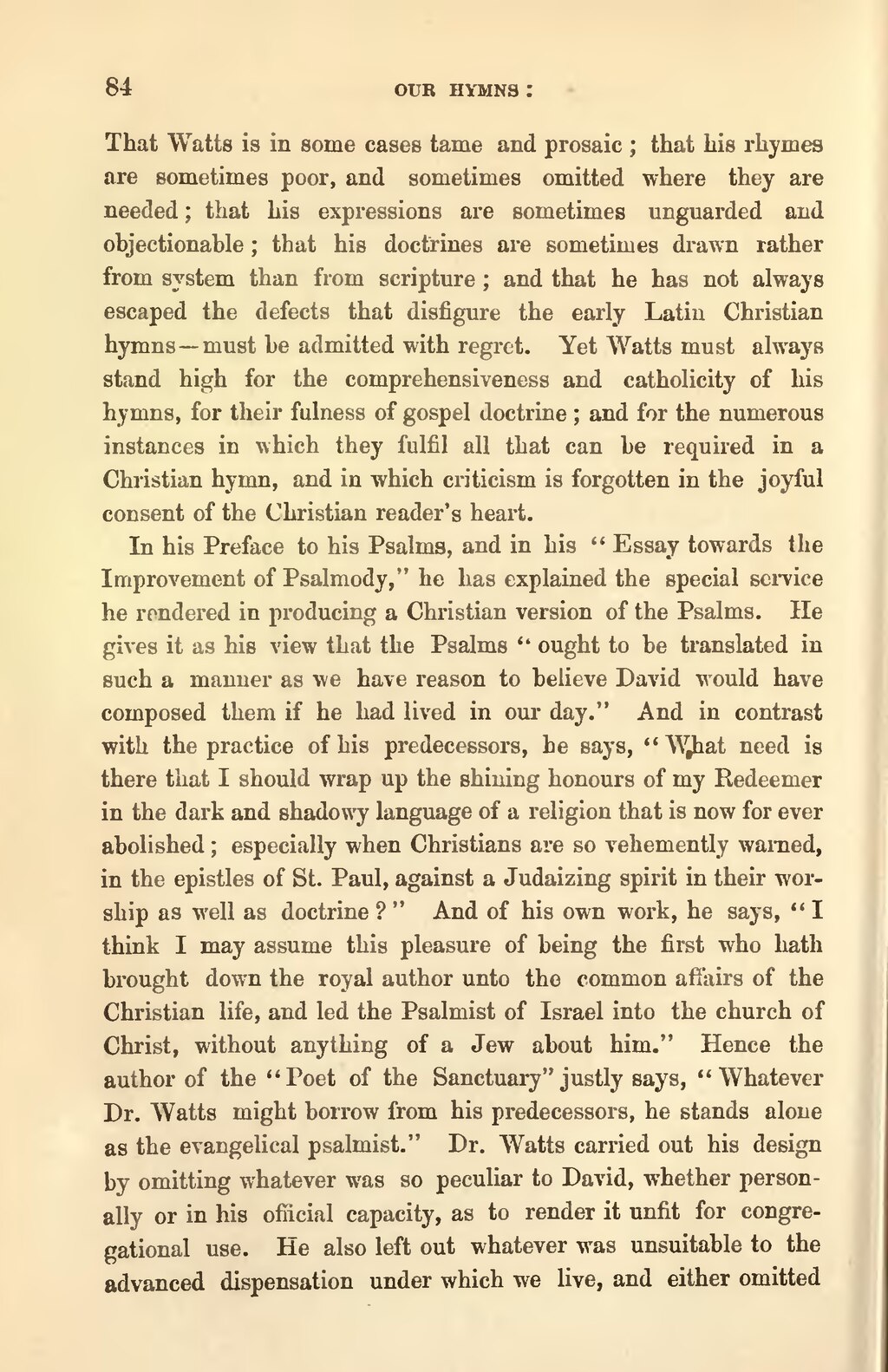84 OUR HYMNS :
That Watts is in some cases tame and prosaic ; that his rhymes are sometimes poor, and sometimes omitted where they are needed ; that his expressions are sometimes unguarded and objectionable ; that his doctrines are sometimes drawn rather from system than from scripture ; and that he has not always escaped the defects that disfigure the early Latin Christian hymns must be admitted with regret. Yet Watts must always stand high for the comprehensiveness and catholicity of his hymns, for their fulness of gospel doctrine ; and for the numerous instances in which they fulfil all that can be required in a Christian hymn, and in which criticism is forgotten in the joyful consent of the Christian reader s heart.
In his Preface to his Psalms, and in his " Essay towards the Improvement of Psalmody," he has explained the special service he rendered in producing a Christian version of the Psalms. He gives it as his view that the Psalms " ought to be translated in such a manner as we have reason to believe David would have composed them if he had lived in our day." And in contrast with the practice of his predecessors, he says, " W,hat need is there that I should wrap up the shining honours of my Redeemer in the dark and shadowy language of a religion that is now for ever abolished ; especially when Christians are so vehemently warned, in the epistles of St. Paul, against a Judaizing spirit in their wor ship as well as doctrine ? " And of his own work, he says, " I think I may assume this pleasure of being the first who hath brought down the royal author unto the common affairs of the Christian life, and led the Psalmist of Israel into the church of Christ, without anything of a Jew about him." Hence the author of the "Poet of the Sanctuary" justly says, "Whatever Dr. Watts might borrow from his predecessors, he stands alone as the evangelical psalmist." Dr. Watts carried out his design by omitting whatever was so peculiar to David, whether person ally or in his official capacity, as to render it unfit for congre gational use. He also left out whatever was unsuitable to the advanced dispensation under which we live, and either omitted
�� �
